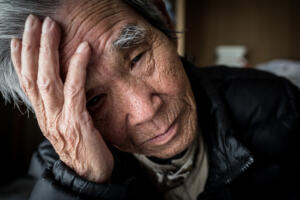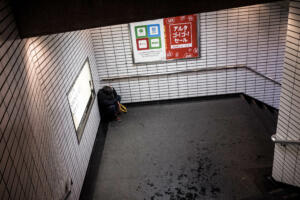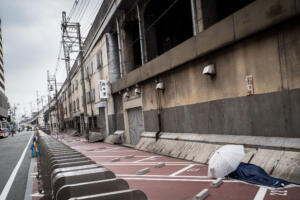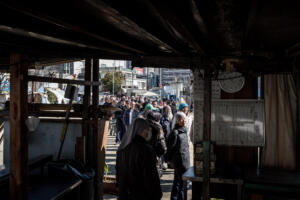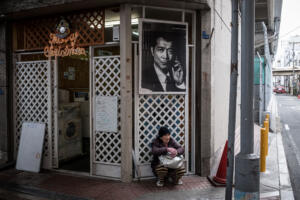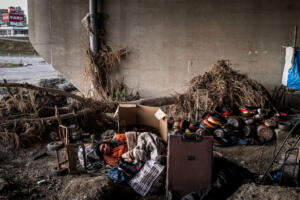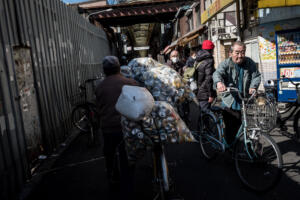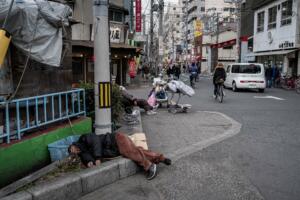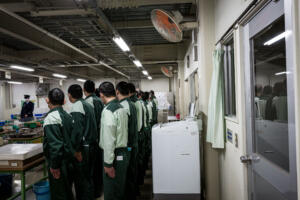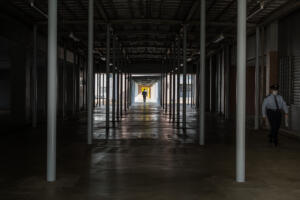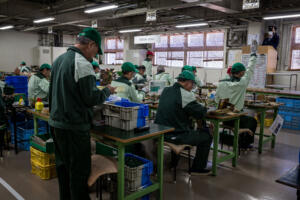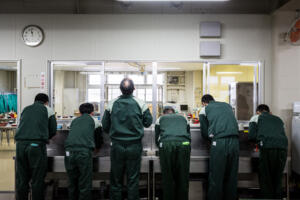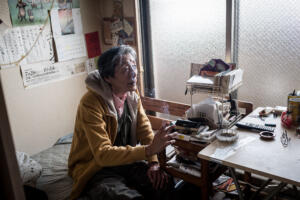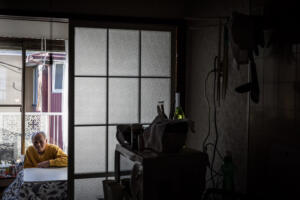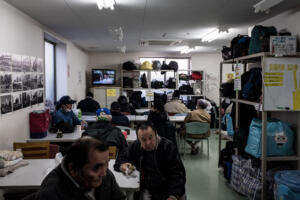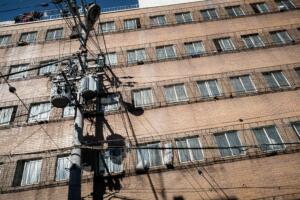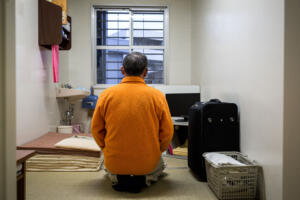Abandoned by a social system that fails them, these people have come to commit petty crimes in order to be arrested and sent to prison. It is a question for them to break an endless circle that keeps pulling them down. Precariousness, isolation, lack of satisfactory sanitary conditions and lack of social ties are the factors most frequently mentioned by elderly offenders. The very relative comfort found in the prison environment pushes some of the elderly offenders to commit other offences as soon as they leave prison, in order to be sent back to prison as soon as possible. In order to be sentenced, they must be repeat offenders, which has the perverse effect of pushing these elderly offenders to repeat their crimes as soon as the street becomes their only means of survival.
While Japan has been experiencing a decline in its prison population for more than a decade, one out of five inmates is an elderly inmate. 21.1% of those arrested in 2017 were over the age of 65, whereas in 2000, this age group represented only 5.8% of the prison population.
Yet Japanese law is trying to adapt and consider this new issue. Some prisons are developing dedicated units and adapting the conditions of imprisonment to these very special prisoners.
This issue raises questions about the meaning of the sentence: for some, the prison world becomes the equivalent of a retirement home and their imprisonment amounts to the State taking charge of them in order to compensate for the inadequacy of their pensions.
